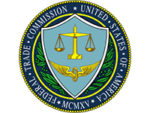 Did you get a letter in March with the Federal Trade Commission (FTC) seal inquiring about your use of material connection disclosures in influencer campaigns and politely reminding you about the Endorsement Guides? If so, you are in good company as many other brand companies have received such letters as part of the FTC’s most recent sweep effort. If not, don’t get too comfortable. We believe this is the beginning not the end. After successfully negotiating a closing letter in the Machinima case for a party based on the presence of an effective compliance program, we have been asked many times; “What do I need to do to have a viable compliance program if the FTC comes knocking?” We have consistently told companies that the goalpost is moving as the FTC expects companies to be more knowledgeable and rigorous as time goes on and awareness builds. But the basic requirements for a brand company engaging influencers will always include training influencers and agents; monitoring for compliance; and enforcing consequences when you become aware of noncompliance. And it takes a village — every actor in the influencer stream has responsibility from the brand to the digital media, PR or influencer agency to the influencers themselves.
Did you get a letter in March with the Federal Trade Commission (FTC) seal inquiring about your use of material connection disclosures in influencer campaigns and politely reminding you about the Endorsement Guides? If so, you are in good company as many other brand companies have received such letters as part of the FTC’s most recent sweep effort. If not, don’t get too comfortable. We believe this is the beginning not the end. After successfully negotiating a closing letter in the Machinima case for a party based on the presence of an effective compliance program, we have been asked many times; “What do I need to do to have a viable compliance program if the FTC comes knocking?” We have consistently told companies that the goalpost is moving as the FTC expects companies to be more knowledgeable and rigorous as time goes on and awareness builds. But the basic requirements for a brand company engaging influencers will always include training influencers and agents; monitoring for compliance; and enforcing consequences when you become aware of noncompliance. And it takes a village — every actor in the influencer stream has responsibility from the brand to the digital media, PR or influencer agency to the influencers themselves.
So back to the warning letters. The last sweep of national advertisers that resulted in a blanketing of letters happened in 2014 with the original Operation Full Disclosure, which focused on the use of fine print in television and print ads. This most recent sweep focuses on if and how paid influencers are disclosing their material connection to an advertiser. First, the recent letters sent are not really warning letters but what one FTC staff member described as “education letters.” The FTC has said on many occasions since the Native Advertising Guidelines came out that they intended to focus on business education. While they still planned to bring cases, they would be the obvious cases. And staff has been true to their word. There have only been a handful of public cases involving influencers in the last few years, including the action against Lord & Taylor. And the FTC staff has been engaged in broad industry education campaigns speaking at just about every major industry conference on the topic. Sending letters is a logical next step—but there is a challenge. In a normal case the FTC sees a claim they think is facially questionable or a marketing practice they have doubts about and they dive in. When they see an online review or a blog or a video post promoting a product, it is not always clear on its face if this is a post with no connection to the product maker or if there is a connection and it is not disclosed. And the FTC is not in the business of assuming guilt. So how did staff pick the targets of the educational letters? There appear to be several buckets. First, the FTC has received complaints from consumer groups about alleged failure to disclose material connections. The examples cited by these groups likely constitute some of the campaigns the FTC is inquiring about. In other cases, the FTC has likely done a sweep and found examples of influencer posts where there are disclosures, but in their view the disclosures are not clearly worded and/or are placed in the post somewhere that is not clear and conspicuous.
So what next? Every situation is going to vary as far as the best next steps and will be very factually dependent. That said, if you got a letter, even if there is no requirement to follow up, this is not a time to file the letter and move on with business as usual. You are on the FTC’s radar and they will be continuing to watch you. And they will soon have reinforcements as their dedicated flock of unpaid summer interns will arrive very shortly and need projects. Now is the time to review the specific post or posts the FTC has flagged for potential correction, but also to look more broadly at the whole campaign, other campaigns, and your influencer practices generally. A warning letter or educational letter or any letter not called a subpoena or a cid is a gift. You are not under official enforcement review. Yet. To avoid your FTC involvement becoming more formal down the road now is time to invest in implementing a compliance program or closely examining whether what you already have is working.